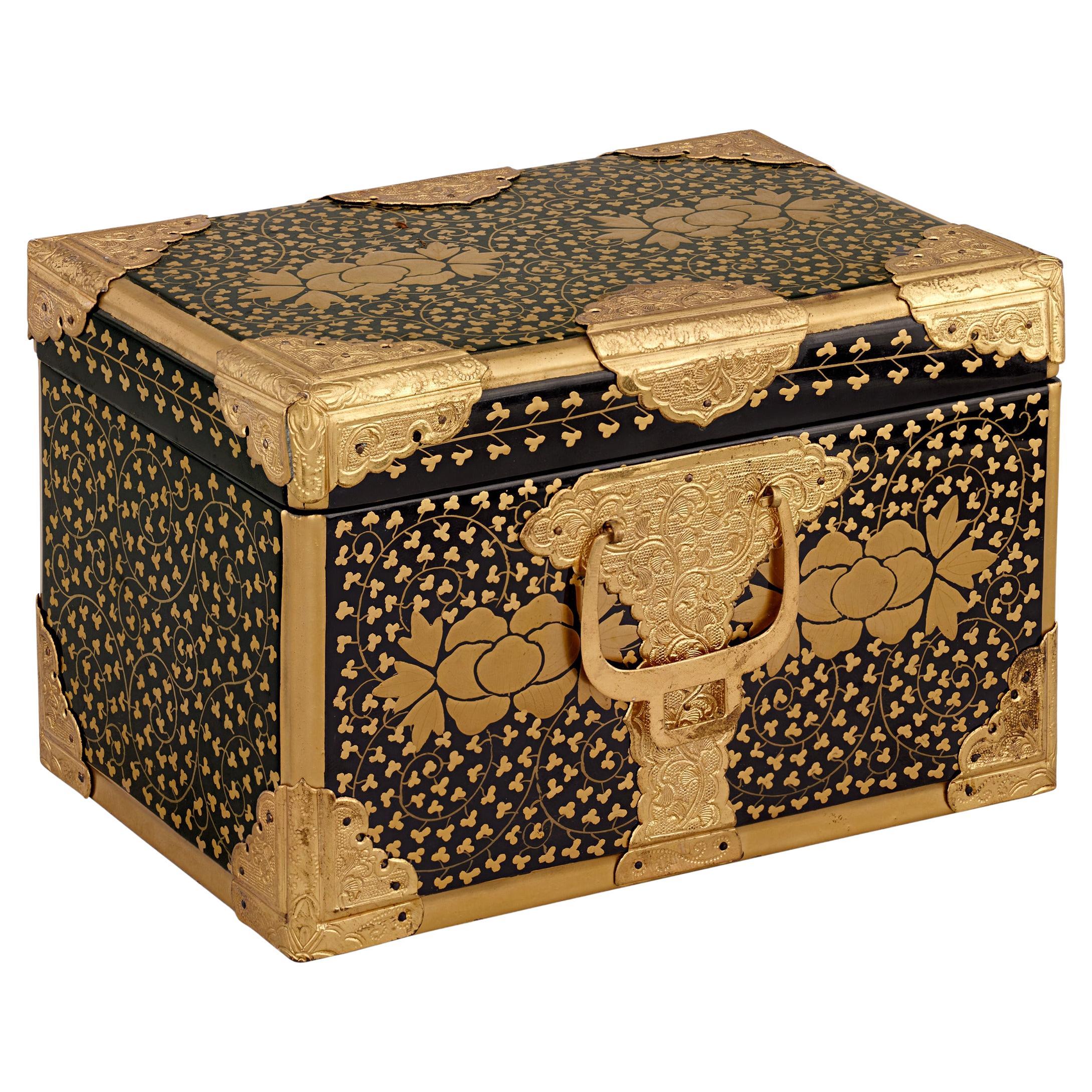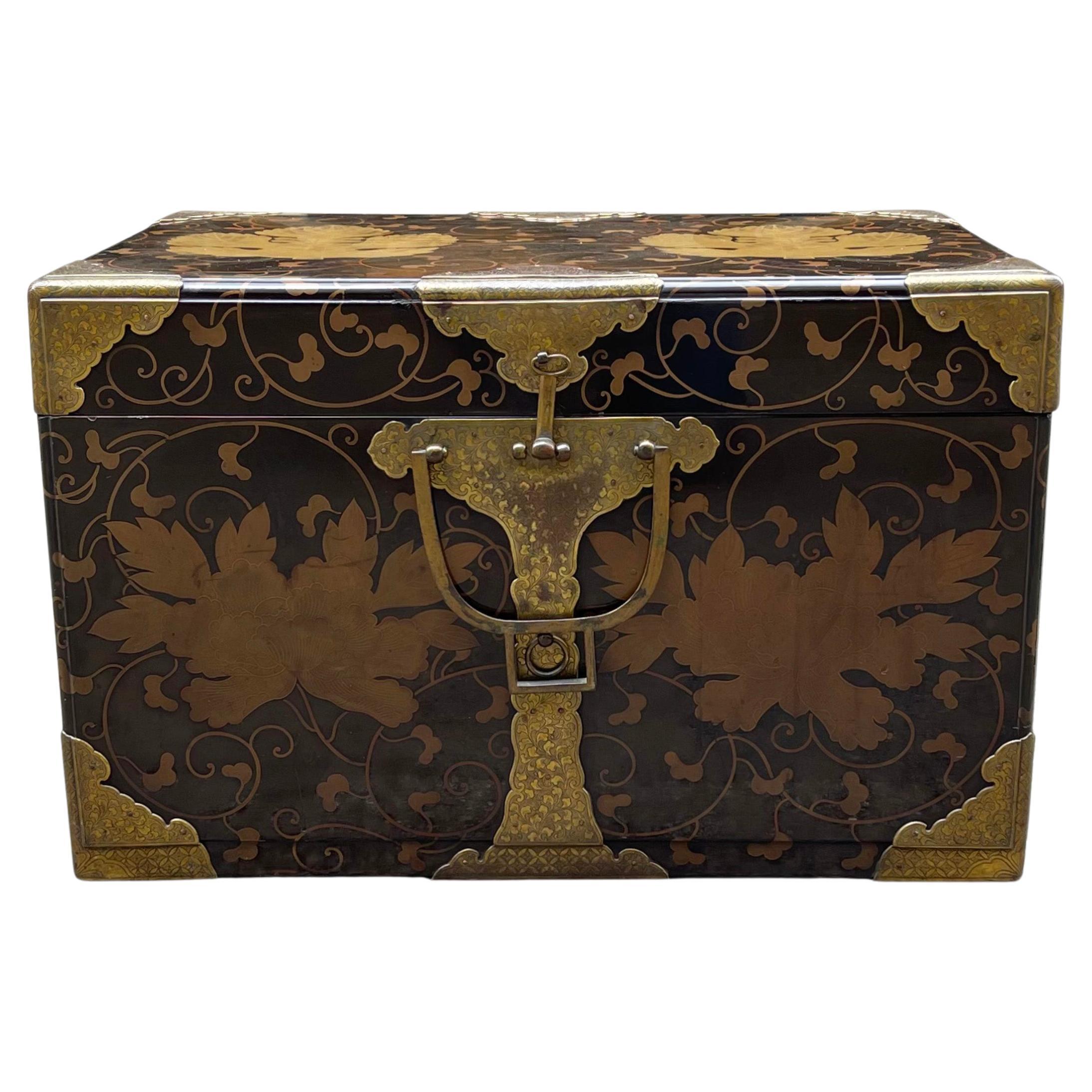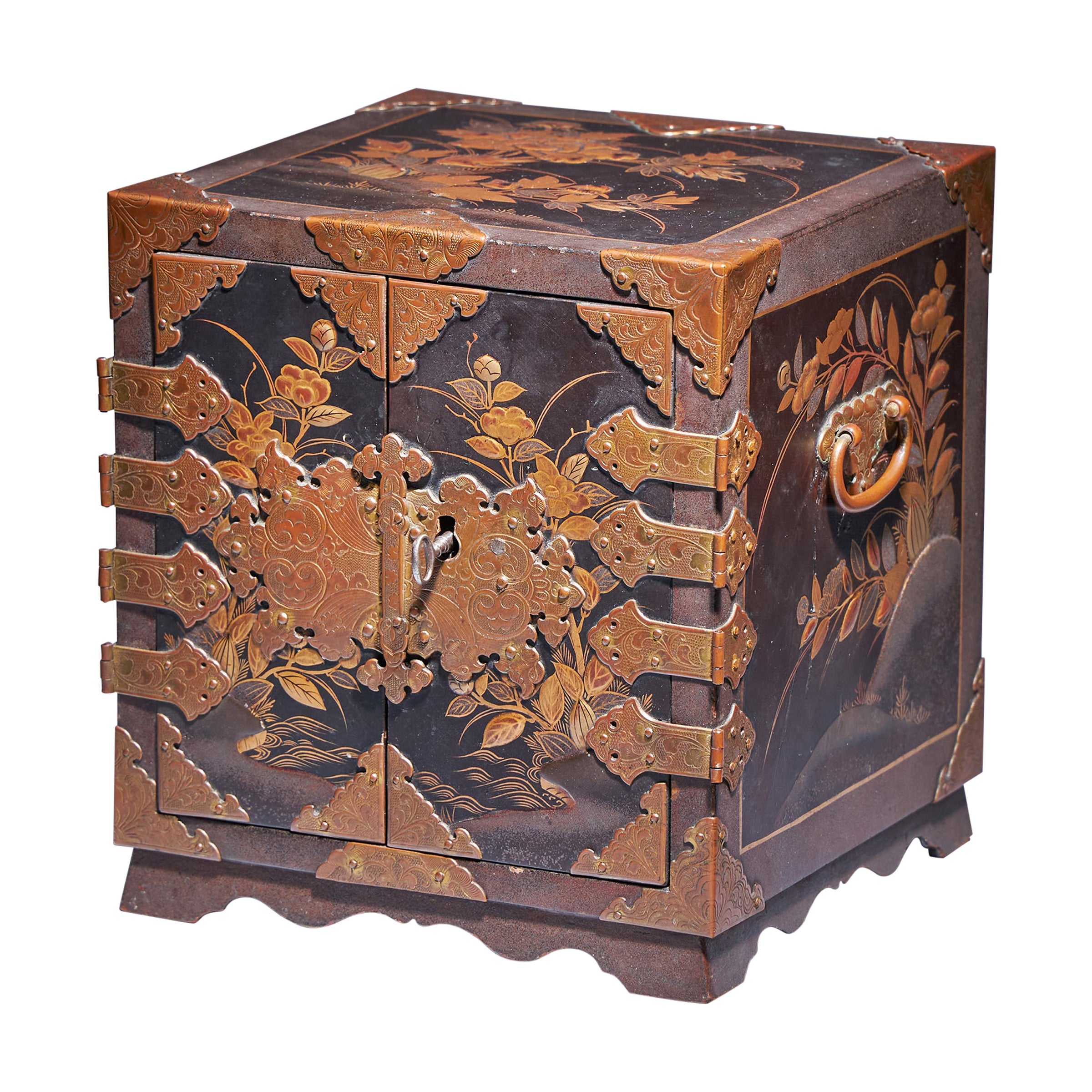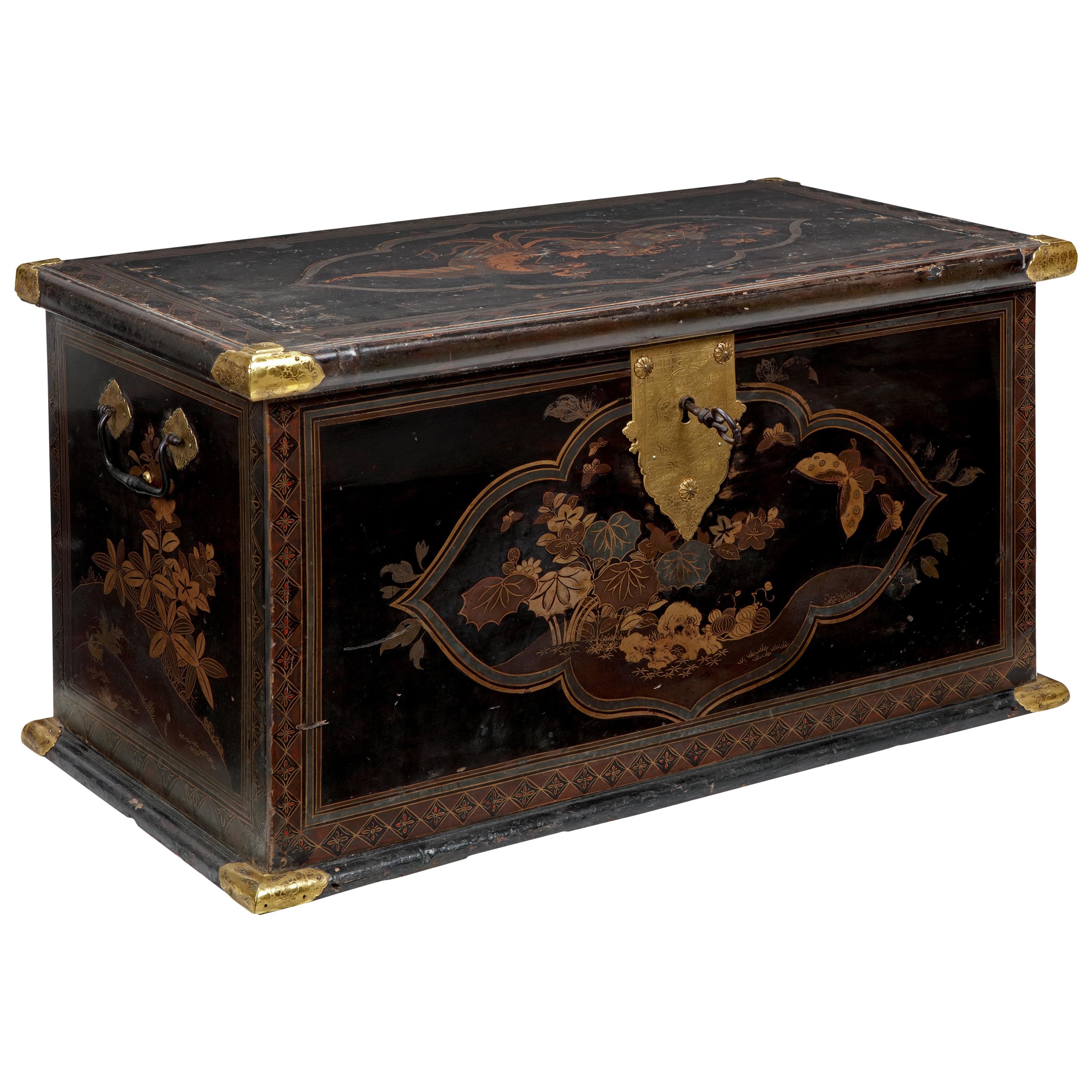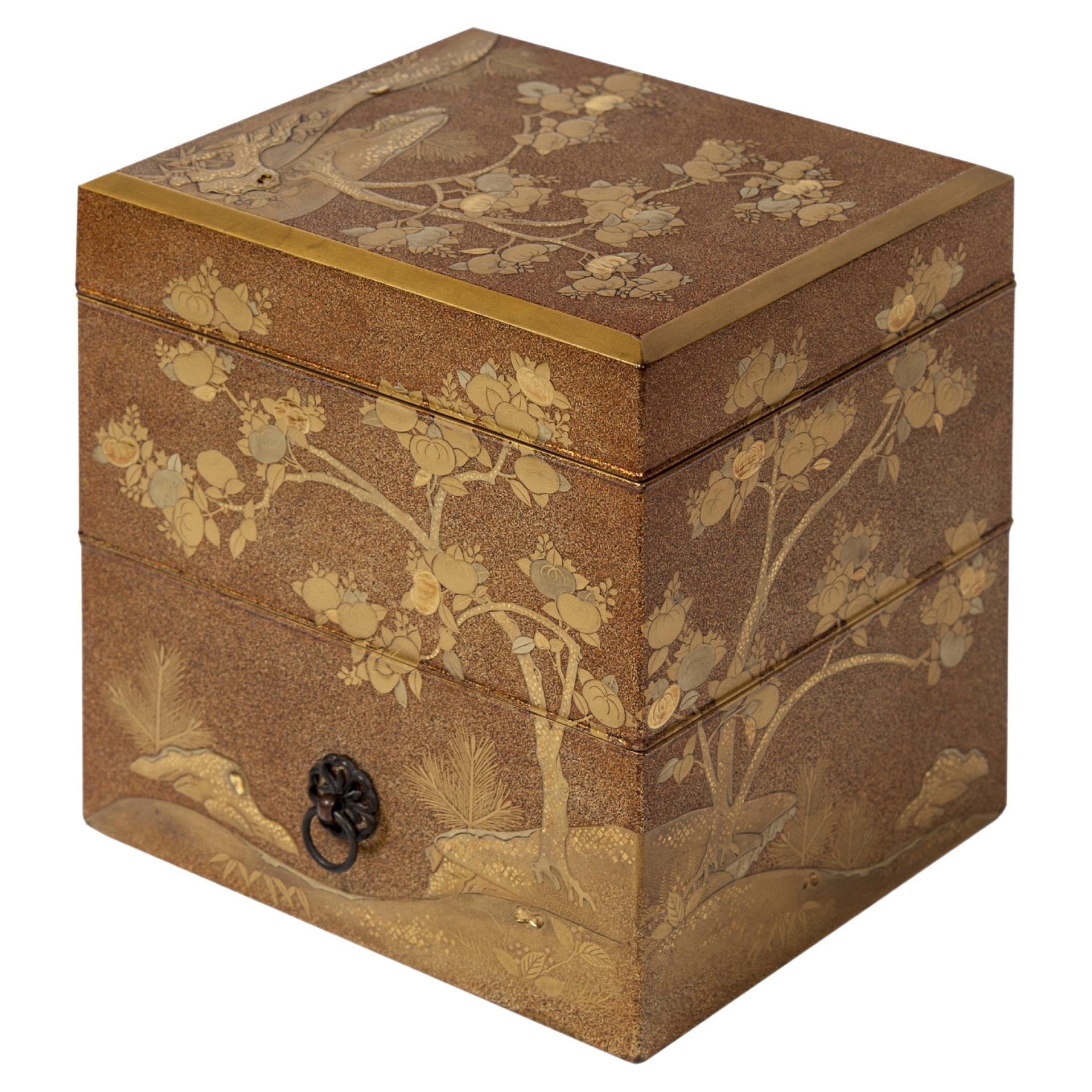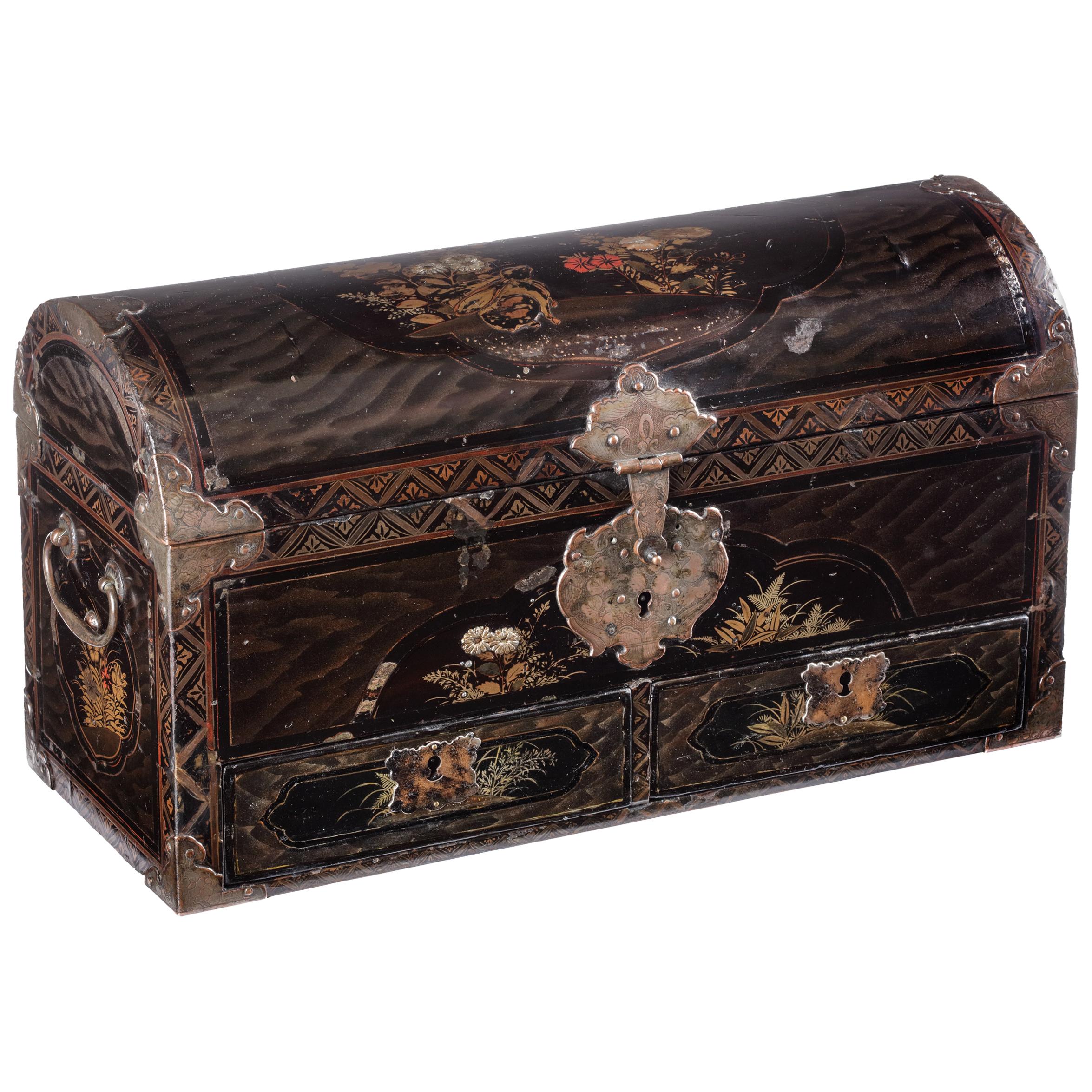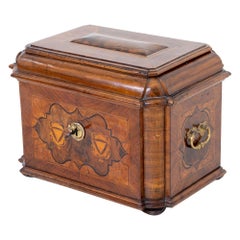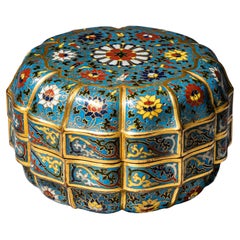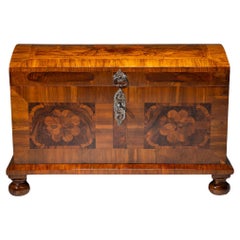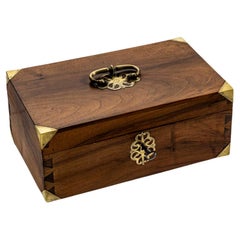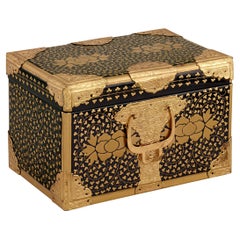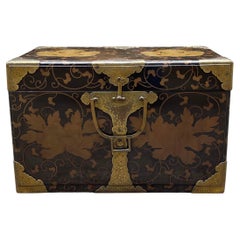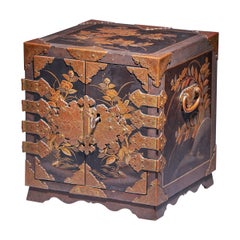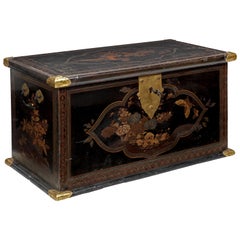Items Similar to Japanese Lacquer Chest, Edo Period
Want more images or videos?
Request additional images or videos from the seller
1 of 14
Japanese Lacquer Chest, Edo Period
$23,481.63
£17,373.47
€19,500
CA$32,467.54
A$35,645.31
CHF 18,596.23
MX$431,357.84
NOK 233,074.91
SEK 219,617.84
DKK 148,473.54
About the Item
Small rectangular Japanese chest with gold lacquer decoration in the form of leaf tendrils. The chest is decorated with cut-out and ornamentally engraved fittings on the corners and around the shackle lock. Restored condition.
- Dimensions:Height: 15.75 in (40 cm)Width: 24.81 in (63 cm)Depth: 16.54 in (42 cm)
- Style:Edo (Of the Period)
- Materials and Techniques:
- Place of Origin:
- Period:
- Date of Manufacture:18th Century
- Condition:Refinished. Wear consistent with age and use.
- Seller Location:Greding, DE
- Reference Number:Seller: 061-00841stDibs: LU1014240270572
About the Seller
4.9
Vetted Professional Seller
Every seller passes strict standards for authenticity and reliability
Established in 1987
1stDibs seller since 2013
511 sales on 1stDibs
Typical response time: 9 hours
- ShippingRetrieving quote...Shipping from: Greding / Röckenhofen, Germany
- Return Policy
Authenticity Guarantee
In the unlikely event there’s an issue with an item’s authenticity, contact us within 1 year for a full refund. DetailsMoney-Back Guarantee
If your item is not as described, is damaged in transit, or does not arrive, contact us within 7 days for a full refund. Details24-Hour Cancellation
You have a 24-hour grace period in which to reconsider your purchase, with no questions asked.Vetted Professional Sellers
Our world-class sellers must adhere to strict standards for service and quality, maintaining the integrity of our listings.Price-Match Guarantee
If you find that a seller listed the same item for a lower price elsewhere, we’ll match it.Trusted Global Delivery
Our best-in-class carrier network provides specialized shipping options worldwide, including custom delivery.More From This Seller
View AllBaroque Guild Chest, Mid-18th Century
Located in Greding, DE
Baroque guild drawer with side brass handles and domed lid. The body stands on pressed ball feet, has rounded corners and is veneered on all sides in walnut with strapwork marquetry.
Category
Antique Mid-18th Century Baroque Decorative Boxes
Materials
Brass
Cloisonné Lidded Box, China, Probably 19th Century
Located in Greding, DE
Chinese cloisonné lidded box in the form of a stylized lobed blossom. Marked on the base with a four-character "Zhengde" reign mark (1506–1521), though likely produced in the 19th ce...
Category
Antique 19th Century Chinese Chinese Export Decorative Boxes
Materials
Metal, Enamel
Lidded Chest, North German, Mid-18th Century
Located in Greding, DE
A Baroque dome-top chest from Northern Germany, dating to the mid-18th century. The chest rests on compressed bun feet and is fitted with a large iron lockplate, decorative escutcheo...
Category
Antique Mid-18th Century German Blanket Chests
Materials
Walnut
Traveller's casket, German, early 19th Century
Located in Greding, DE
Rectangular walnut chest with brass fittings on the corners and a handle on the lid. The interior is divided into smaller compartments and flaps, which can be attached using small ho...
Category
Antique Early 19th Century German Biedermeier Commodes and Chests of Dra...
Materials
Brass
Chest with Leather Cover, Probably Italy 18th Century
Located in Greding, DE
Elongated chest with a domed lid and iron fittings. The wooden chest is covered with dark brown leather and decorated with rivets. The chest stands on forked legs and is lined with f...
Category
Antique Late 18th Century Blanket Chests
Materials
Leather
Baroque Chest on modern, baroque-style Stand, 18th / 20th Century
Located in Greding, DE
Small baroque chest resting on a modern, baroque-style stand. The front is decorated with stylized arched motifs and fitted with iron fittings and straps. The exterior has been newly...
Category
Mid-20th Century Baroque Blanket Chests
Materials
Iron
You May Also Like
Edo-Period Lacquerware Chest
Located in New Orleans, LA
Edo-Period Lacquerware Chest
19th-century
This exquisite chest, inspired by Hasami-Bako travel trunks, is a striking example of Japanese lacquerware. The hiramaki-e technique—applie...
Category
Antique 19th Century Japanese Edo Decorative Boxes
Materials
Gold
Japanese Lacquered and Gold Leaf Storage Trunk (Nagamochi)
Located in CA, CA
A fine lacquered and gold leaf Nagamochi dating from the late 18th century or early 19th century.
The exterior of the trunk and its gilded metal fittings are decorated with a folia...
Category
Antique Late 18th Century Japanese Edo Decorative Boxes
Materials
Gold Leaf
Important Early Edo Period 17th Century Miniature Japanese Lacquer Cabinet
Located in Oxfordshire, United Kingdom
A Rare and Important 17th Century Miniature Japanese Lacquer Cabinet, 19 cm H, 17cm W, 16.5cm D.
The exquisitely decorated cabinet depicts fine floral raised scenes to each side. l...
Category
Antique 17th Century Decorative Boxes
Materials
Lacquer
Large Royal Early 17th Century Japanese Lacquer Chest with Gilt-Bronze Mounts
Located in Amsterdam, NL
A large Japanese transitional lacquer chest with gilt-metal mounts
Edo period, early 17th century
The rectangular chest with flat hinged lid decorated in gold, silver, and red ...
Category
Antique Early 17th Century Japanese Blanket Chests
Materials
Bronze
Japanese Lacquered Tebako 'Box'
Located in PARIS, FR
Tebako box with three compartments in golden and nashi-ji lacquer, decorated with golden, red, and kirigane lacquer, golden persimmon tree leaves, among rocks. The compartments are of increasing size from the top. The decoration is in continuity.
Persimmon has been cultivated in southern China for more than 2500 years and is believed to have been introduced to Japan in the 8th century. The veneer is a tree with very hard wood, similar to ebony. According to a legend, one specimen survived the atomic bombing of Nagasaki on August 9, 1945, close to the epicenter. It is therefore in Japan a symbol of strength and longevity. It is also the national fruit of the country. It is eaten as a traditional dish during New Year's Day celebrations.
Tebako literally means "portable box...
Category
Antique 1860s Japanese Lacquer
Materials
Lacquer
Fine Japanese Namban Lacquer Jewelry Casket, 17th Century
Located in Amsterdam, NL
Japanese Namban lacquer transition-style coffer with two drawers
Kyoto/Nagasaki, circa 1650
The cartouches with gilt and red decorations of leaves...
Category
Antique 17th Century Japanese Edo Lacquer
Materials
Cypress
More Ways To Browse
Japanese Ceramics Edo Period Or Earlier
Edo Period Chest
18th Century Japanned Box
Small Japanese Chest
Antique Shackles
Black Japanese Chest
Carved Wood Inlay Box
Cobalt Box
Hidden Box
Italian Alabaster Box
Japanese Cloisonne Box
Peint Main
Vintage Ceramic Trinket Box
17th Century Wood Box
Antique Stationary Box
Brass And Glass Trinket Box
Crystal Casket Box
Dome Top Box
